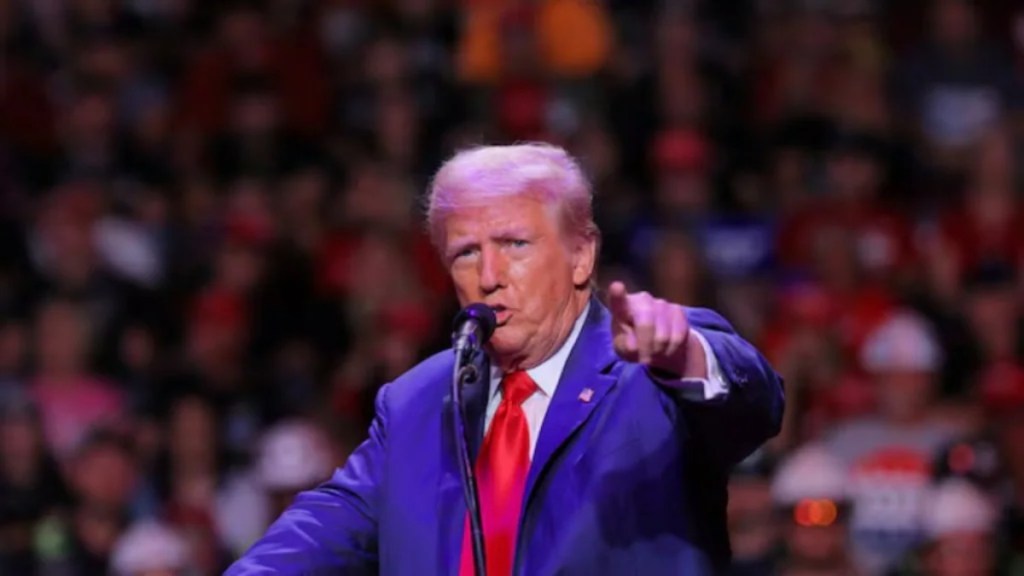In a dramatic shift on February 3, 2025, President Donald Trump announced a temporary suspension of the 25% tariffs he had planned to impose on goods imported from Mexico and Canada. This decision followed intense negotiations and significant concessions from both nations to address US concerns regarding illegal immigration, fentanyl trafficking, and oil exports.
Originally set to take effect on February 5, these tariffs could have had devastating effects on the economies of both countries, with Canada and Mexico quickly preparing retaliatory tariffs of their own. However, due to a series of diplomatic efforts, the impending trade war was put on hold for at least 30 days.
In a post on Truth Social, Trump remarked “We’ve had great discussions with Mexico and Canada. They are taking strong steps on fentanyl and border security. The tariffs are on hold for now. We will keep working to make sure our country stays safe.”
Mexico’s Commitments: 10,000 Troops and Stronger Border Measures
Mexico’s President Claudia Sheinbaum played a crucial role in averting the tariffs, agreeing to deploy 10,000 members of the Mexican National Guard to the US-Mexico border. This move is part of a broader effort to control the flow of fentanyl and curb illegal immigration.
Sheinbaum, in a statement following her call with Trump, explained “Mexico understands the urgency of the situation. We are committed to working closely with the United States to reduce fentanyl trafficking and better manage our shared border.”
In addition to the troop deployment, Mexico also agreed to establish two high-level working groups with U.S. officials, one focused on security and the other on trade. President Trump, in a social media post, praised this development “Mexico is doing its part in the fight against fentanyl. We are committed to helping them stop the flow of guns and drugs that threaten both of our countries.”
Canada’s contributions: $1.3 bn Border plan and Fentanyl Czar
Prime Minister Justin Trudeau of Canada also made significant commitments to satisfy Trump’s demands. Trudeau confirmed that Canada would continue to implement its $1.3 billion border plan, which includes deploying new technology, personnel, and equipment to reinforce border security. This plan also aims to reduce the flow of fentanyl and other illegal drugs into the US.
Trudeau shared the details on social media, writing “I just had a good call with President Trump. Canada is implementing our $1.3 billion border plan reinforcing the border with new choppers, technology, and personnel, enhanced coordination with our American partners, and increased resources to stop the flow of fentanyl.”
Furthermore, Canada pledged to create a new position for a `fentanyl czar,’ tasked with overseeing efforts to combat the opioid crisis. Trudeau also announced plans to designate Mexican cartels and criminal gangs as terrorist organizations, which aligns with Trump’s stance on tightening security against drug cartels.
In his own remarks, Trudeau stressed the joint responsibility in addressing the opioid crisis “This is a shared responsibility. Canada is stepping up its efforts to tackle fentanyl trafficking and organized crime that harms both of our nations.”
Strong border security, economic leverage, and concerns about China
For Trump, this tariff suspension is a victory in his broader efforts to use tariffs as leverage in trade negotiations and border security. Trump’s administration has long been focused on securing the US-Mexico border and stopping the flow of drugs like fentanyl, which has contributed to the US opioid crisis.
The president has also raised concerns about oil exports from Mexico, with the Gulf of Mexico’s energy resources drawing significant interest from US energy companies. While Trump’s remarks on social media focused primarily on the fentanyl issue, he has previously pointed to energy concerns, which could still be a factor in future negotiations.
Trump’s commitment to working with both Mexico and Canada on these issues was clear in his social media posts “We are giving them time to finalize the deal. But if they don’t deliver, tariffs will come back. It’s as simple as that.”
China’s Growing Influence and Trump’s Upcoming Talks
While the focus of these trade talks has been on Mexico and Canada, Trump’s approach has been shaped by broader geopolitical concerns, including China’s growing influence on global trade and supply chains. Trump has repeatedly warned of China’s dominance in critical industries, such as rare earth minerals, technology, and pharmaceuticals, and how it could impact North American security.
In an earlier statement, Trump said, “The U.S. cannot afford to continue relying on China for essential supplies, especially as we see the destabilizing influence they exert globally. Our agreements with Mexico and Canada are part of a broader strategy to ensure that we are not dependent on adversaries like China for our economic security.”
Trump’s push to secure U.S. economic interests with Canada and Mexico could also serve as a strategic move ahead of upcoming talks with Beijing. The administration has signaled that it may be preparing for a new round of negotiations with China soon, with Trump potentially set to meet with Chinese officials to address outstanding trade issues. “We are ready to talk to China. We have to ensure that American companies and workers are not undermined by unfair Chinese practices. If we reach a fair deal, it will be good for everyone. But China knows it will have to make significant changes,” Trump commented in a briefing last week.
With this latest pause in tariffs, the US is signaling to Mexico, Canada, and even China that it is serious about both securing its borders and protecting its economic interests in the face of global competition.
Next Step
While the tariffs are now paused for 30 days, the suspension is not permanent. The delay provides both countries the opportunity to meet the U.S. demands on border security and drug control, but Trump made it clear that failure to deliver on these commitments could lead to the immediate re-imposition of the tariffs.

